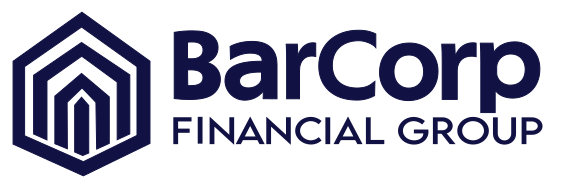Conforming Loan
What is a Conforming Loan?
A conforming loan is a type of mortgage that meets the guidelines set by Fannie Mae and Freddie Mac, two government-sponsored enterprises. These loans adhere to specific criteria, including maximum loan amounts, credit score requirements, and debt-to-income ratios. By conforming to these standards, conforming loans typically offer more favorable terms, such as lower interest rates, making them a popular choice for homebuyers.

Benefits of a Conforming Loan
Conforming loans offer several advantages for prospective homebuyers. These loans usually come with lower interest rates compared to non-conforming loans, making monthly payments more affordable. Additionally, because they meet standardized criteria, they are easier to qualify for, even for those with moderate credit scores. The predictability and stability of these loans provide peace of mind, as they often have fixed interest rates and consistent monthly payments.
Benefits and Advantages
Lower Interest Rates
Reduced monthly payments
Easier Qualification
Accessible for moderate credit scores
Predictable Payments
Financial stability and planning
Government-Backed Guidelines
Enhanced trust and reliability
Fixed Interest Rates
Protection against market fluctuations
Variety of Term Options
Ideal for real estate investors
Lower Down Payment Option
Easier entry into homeownerships
Standardized Criteria
Simplified application process
No Prepayment Penalties
Flexibility to pay off loan early
Wide Availability
Numerous lenders offer these loans
Questions and Answers
1. How Does a Conforming Loan Differ from a Non-Conforming Loan?
A conforming loan adheres to the guidelines and loan limits set by Fannie Mae and Freddie Mac, making it eligible for purchase by these government-sponsored enterprises. Non-conforming loans, such as jumbo loans, exceed these limits and often come with different underwriting requirements and interest rates due to the increased lending risk.
2. What are the Loan Limits for Conforming Loans?
The loan limits for conforming loans can vary by region and are adjusted annually. In most areas, the standard limit for a single-family home is les than $766,550 and set by the Federal Housing Finance Agency (FHFA). In high-cost areas, the limits can be significantly higher, allowing borrowers to obtain larger mortgages under conforming loan terms.
3. What Credit Score is Required for a Conforming Loan?
Generally, borrowers need a credit score of at least 620 to qualify for a conforming loan. However, a higher credit score can result in more favorable loan terms and interest rates.
4. What Down Payment is Required for a Conforming Loan?
The typical down payment for a conforming loan is 20% of the home’s purchase price. However, there are programs available that allow for lower down payments, even as low as 3%, especially for first-time homebuyers.
5. What Types of Properties Can Be Financed with a Conforming Loan?
Conforming loans can be used to finance primary residences, second homes, and investment properties. However, there are specific guidelines and limits on the amount that can be borrowed for each type of property.
6. What are the Interest Rates Like for Conforming Loans?
Interest rates for conforming loans are typically lower than rates for non-conforming loans because they are considered less risky by lenders. Rates can vary based on credit score, down payment, and other financial factors.
. Is Mortgage Insurance Required for Conforming Loans?
Mortgage insurance is required on conforming loans with down payments less than 20%. This insurance protects the lender in case the borrower defaults on the loan.
8. Can I Refinance a Conforming Loan?
Yes, conforming loans can be refinanced to take advantage of lower interest rates, reduce monthly payments, or change the loan term. Borrowers can also refinance to switch from an adjustable-rate mortgage to a fixed-rate mortgage.
9. What Documentation is Required to Apply for a Conforming Loan?
Applying for a conforming loan typically requires documentation such as proof of income (W-2 forms or pay stubs), proof of assets (bank statements), employment verification, and a credit report.
10. What Are the Key Considerations When Choosing a Lender for a Conforming Loan?
When selecting a lender for a conforming loan, it’s crucial to consider factors such as interest rates, loan terms, customer service, and the lender’s reputation for reliability. A good lender will offer competitive rates, transparent terms, and personalized service to help borrowers understand their options and navigate the loan process smoothly. Additionally, looking for a lender that provides thorough guidance on the required documentation and the overall application process can ensure a more efficient and less stressful mortgage experience.
Have any Questions…
We’re here to help!
Why BarCorp is the Best Option?
At BarCorp Financial Group, we pride ourselves on providing exceptional service and personalized mortgage solutions tailored to your needs. Our team of experienced mortgage advisors will guide you through every step of the process, ensuring a smooth and stress-free experience. We are committed to helping you secure the best possible loan terms, making your home buying journey as seamless as possible. Choose BarCorp for our expertise, dedication, and consumer-focuseds Approach
